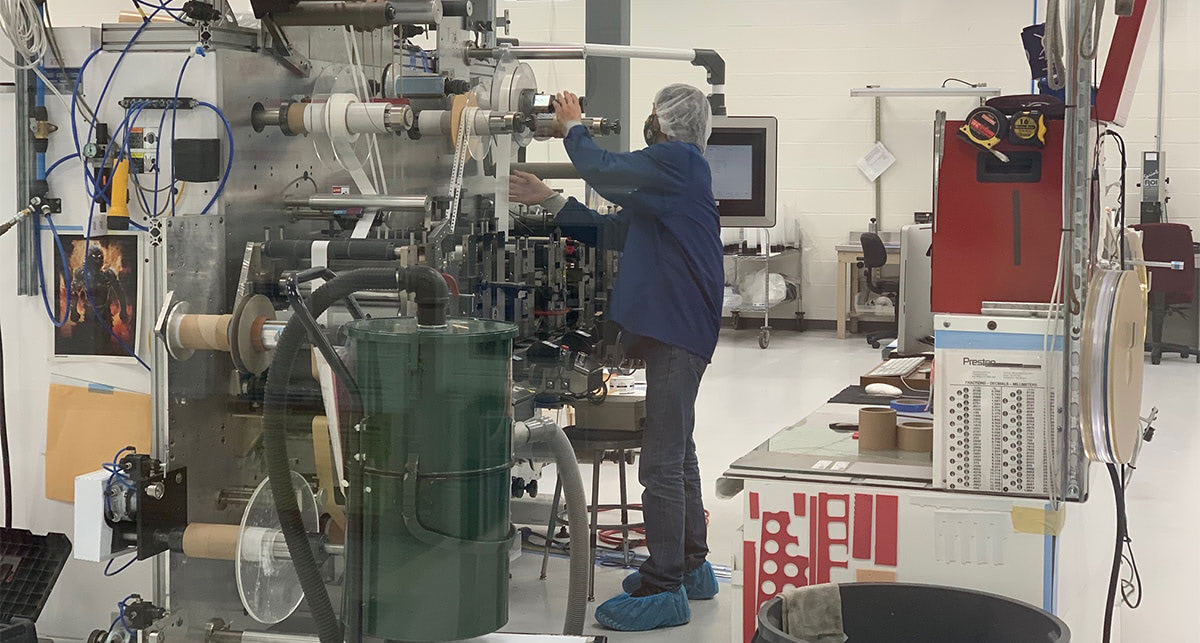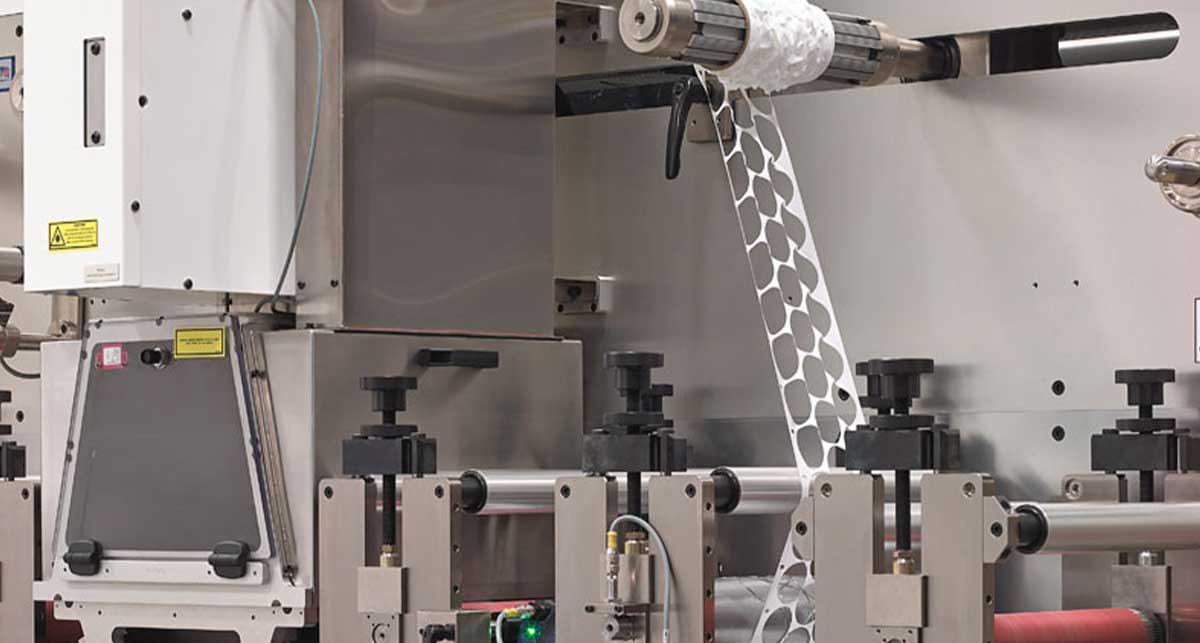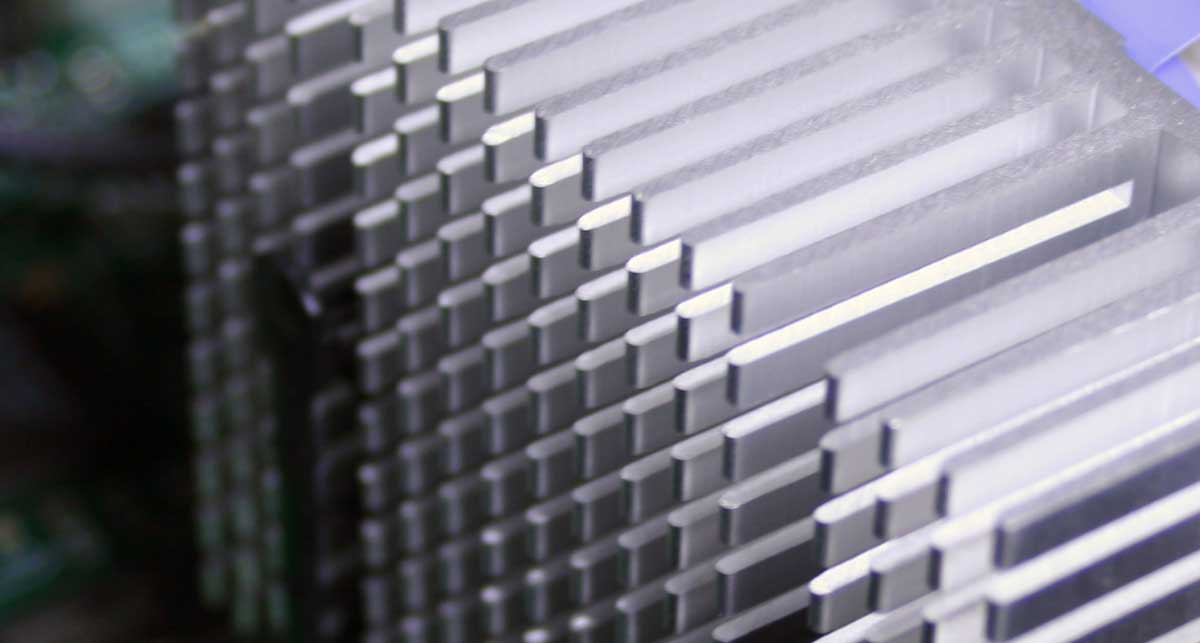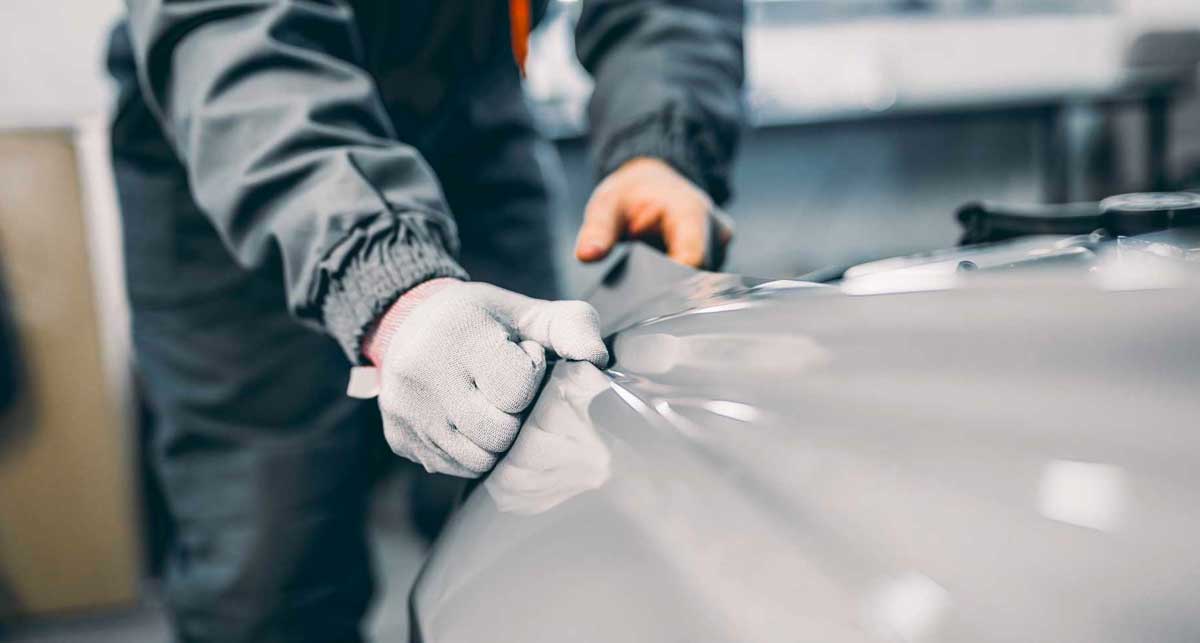NOTE: This article is #1 in a 3-part series on the power and versatility of pressure sensitive adhesive tape. It’s really a celebration of applications and possibilities. Part 2 covers 3M™ VHB™ tape as a superior bonding solution, and Part 3 offers help on choosing a converter.
When manufacturers need to bring together two or more surfaces, either temporarily or permanently, they often choose to use a viscous substance — adhesive bonding — because of its many assembly advantages and versatility. The materials used to do this could be adhesive tape, adhesive film, glue, epoxy, or something else, however, pressure sensitive adhesive tape (PSA) is becoming increasingly popular.
PSAs, now one of the most trusted bonding solutions available and used in nearly every industry, have replaced some traditional bonding methods and are often preferred due to their functionality and aesthetic advantages. Let’s explore the types, applications, challenges, and common industries using pressure sensitive adhesive tape.
What is a Pressure Sensitive Adhesive Tape and What Types are There?
Modern bonding innovations are amazing! While traditional tape or film options were often weaker than other binding materials, today’s bonding solutions are some of the most durable materials on Earth.
Often made with adhesives based on natural or synthetic rubber (formulated with resins/oils/antioxidants), acrylic polymers, or silicone polymers, advanced PSAs go far beyond simple masking tape. This category of adhesive tapes — usually a thin and flexible material with single- or double-sided adhesive coating — can be applied with pressure to many clean, dry surfaces. Adhesive tapes that aren’t applied using pressure could use water, a solvent, or heat to activate an adhesive.
PSAs open up design possibilities for engineers, offering freedom to design the best solutions that don’t depend on fasteners or welds or tough-to-apply bonds. Temporary PSAs hold well but can be removed or repositioned, so they’re perfect for any product that requires temporary holding. Permanent PSAs can create bonds that are nearly as strong as the components themselves.
You Have Options; Why Use Pressure Sensitive Adhesive Tape?
For years, engineers used many solutions to bond materials. These worked for decades, yet each had limitations that frustrated engineers who wanted more effective solutions. Here are some examples:
- Rivets/Fasteners — Industrial applications require a permanent bond, yet applying these heavy pieces can slow down assembly times, holes can increase bond failures, and vibration/corrosion problems are inevitable.
- Welding — Typically seen as a quick and permanent bond, not all materials can be welded, plus the process is labor intensive, driving up labor and material costs.
- Liquid and Spray Adhesives — Liquid adhesives are strong but can be difficult to apply (by automated machines or manually), plus they add expense and curing time to the process. Spray adhesives are also difficult to evenly apply, causing quality concerns, and often require a specialized applicator. Both liquid and spray adhesives can also be messy, even if you develop a process to apply them.
The right adhesive tape can replace these old options while evenly distributing pressure across the tape instead of concentrated on small points along the substrate. Plus, tape can be converted to custom sizes and shapes to function properly and reflect design aesthetics, often important in consumer and industrial products.
What Industries Benefit Most from PSA Tapes?
Pressure sensitive adhesive tapes are used in nearly every industry you can imagine. Medical manufacturers use PSAs for wound care and within devices; automotive industry for bonding/attaching on vehicles; electronics manufacturers for insulation or heat/electrical sealing; plus many others: industrial, appliances, consumer goods, construction, etc.
The key in any industry is a converter’s manufacturing capabilities that provide the material needed in the exact size, shape, and format needed.
• Medical — A medical device needs to hit specific performance, cost, timing, and compliance goals. Each product is unique, and adhesives need to be properly designed, converted, and implemented to ensure short- and long-term success.
• Safety — From personal protective equipment (PPE) to occupational health and safety posters, signage, placards, and labels, a converter’s capabilities and automated adhesive solutions can help promote and ensure safety.
• Electronics — The right PSAs meet the demand for electronic devices that are continually decreasing in size and increasing in efficiency and functionality. Thermally conductive adhesive tape is specifically used to dissipate heat within electronics products.
• Automotive — An assembly line that saves time and money is a competitive advantage. PSAs slit to proper sizes, cut to the right shape, and designed for easy assembly helps automotive adhesives stand out from others.
• Aerospace — Lighter, safer, quieter. As aircraft evolves, engineers look to for die cut pressure sensitive adhesive materials to serve critical functions. Projects of all types (untested concepts to full-on manufacturing) benefit from PSA solutions.
• Appliance — Some PSA tapes are designed to meet functionality needs — surface protection, mounting, component marking, transport — for refrigerators, freezers, washing machines, ovens, dishwashers, etc.
• Industrial — Simplifying processes by slitting tape to the right dimensions reduces waste, saves material costs, and improves production rates. PSA packing tape seals cartons, provides a tamper-evident seal, and prepares goods for shipment.
• Consumer Goods — More and more complex and varied demands require high-end PSAs that enable the production of a variety of products: keypads to beauty care products to fashion products.
• Design & Construction — Demanding environments and performing under tough conditions are more reasons to select the right PSAs. Solutions for the design and construction industry help improve productivity, reliability, and safety.
• Military & Defense — Refurbishing used equipment. Building new machinery. Tracking weapons and vehicles. The right PSA tape can end up being a critical component to ensuring successful military operations.
• Renewable Energy — Wind, solar, geothermal, batteries, nuclear. These renewable energy systems use PSA tape products during manufacturing and installation to meet the unique challenges found within the industry.
The Right Converter Maximizes PSA Tape’s Capabilities
As mentioned earlier, the real key to success when using pressure sensitive adhesive tapes is who does the converting. A quality converter — paired with the right material — helps take you from the rough sketch/napkin stage to a reliable solution on the production floor by understanding your needs, your budget, and having expertise in using PSA tapes. If the “right material” doesn’t exist in the market, a quality converter can combine multiple materials to create the perfect product for your application.
While many bonding options have limitations, the most scientifically advanced adhesive tapes in the world — in the hands of an experienced converter — can handle nearly any adhesive challenge.
Strouse die cuts and converts flexible material to the exact size, shape, and format required for the design. We apply everything we know to every project, and the result is a better understanding of what works best for that project. Ready to experience the benefits of working with a 3M Preferred Converter that knows pressure sensitive adhesive tape inside and out? Discuss your products and needs with an adhesive conversion specialist today.
.jpeg?width=290&name=0%20(1).jpeg)




